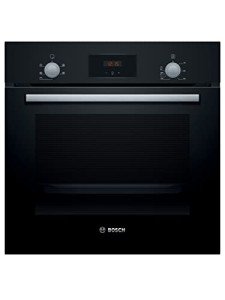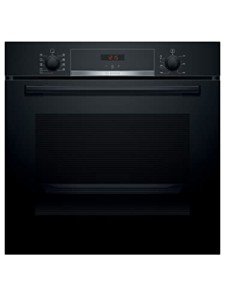Guide To Fitted Ovens And Hobs: The Intermediate Guide To Fitted Ovens And Hobs
페이지 정보
본문
Fitted Ovens and Hobs: An In-Depth Guide to Modern Cooking Appliances
Fitted integrated ovens uk and hobs have ended up being a staple in modern-day kitchen areas, combining performance, aesthetics, and innovative technology. These kitchen appliances are created to flawlessly integrate into kitchen surface areas, offering the cooking lover with the tools needed for effective meal preparation while keeping a streamlined and orderly look. In this article, we will explore the various types of fitted ovens and hobs, their benefits, elements to think about when choosing them, and responses to regularly asked concerns.

Comprehending Fitted Ovens and Hobs
Fitted ovens and hobs are appliances particularly designed to be built into kitchen cabinetry or countertops for a smooth appearance. They can vary substantially in style, size, functionality, and features, which accommodate diverse cooking needs and kitchen styles.
Kinds Of Fitted Ovens
- built in electric oven-in Ovens: These ovens are installed straight into a wall or kitchen system and can be found in different configurations and sizes.
- Double Ovens: A built-in variation that includes two separate oven compartments, enabling multiple meals to be cooked at differing temperature levels all at once.
- Combination Ovens: fitted ovens These flexible appliances combine traditional baking with microwave innovation.
- Steam Ovens: Ovens that utilize steam for cooking, keeping moisture in food while boosting tastes and nutrients.
- Single Ovens: A basic oven system that is the most typical type used in homes.
Kinds of Hobs
- Gas Hobs: These use burner for cooking, offering instant heat and precise temperature control.
- Electric Hobs: Powered by electricity, these hobs often include smooth surfaces that make them easy to tidy.
- Induction Hobs: Utilizing electro-magnetic energy, induction hobs heat pots and pans straight instead of the hob surface, making them energy efficient and a safe option.
- Blended Hobs: These offer both gas and electric alternatives, supplying versatility for cooking styles.
Advantages of Fitted Ovens and Hobs
Fitted ovens and hobs offer many benefits that improve the cooking experience:
- Space Efficiency: Designed to fit into cabinetry, fitted appliances use up less space compared to standalone models, producing a structured kitchen design.
- Looks: Fitted models typically develop a more cohesive and aesthetically appealing kitchen design.
- Customization: Homeowners can pick from a range of designs, surfaces, and includes to match their kitchen design and cooking requirements.
- Improved Functionality: Many modern-day fitted ovens and hobs boast sophisticated technology, such as smart controls, self-cleaning functions, and precise temperature level settings, which streamline cooking.
- Security Features: Many hobs, specifically induction models, have safety features such as auto shut-off and kid locks, promoting a safer cooking environment.
Aspects to Consider When Choosing Fitted Ovens and Hobs
When picking fitted appliances for a kitchen, several elements must be thought about to ensure the ideal choice:
- Cooking Style: Different appliances deal with numerous cooking habits. Home cooks must evaluate their common meal preparation approaches to find appropriate appliances.
- Area and Layout: Measure the available space in the kitchen to guarantee that the chosen appliances fit neatly without hindering motion.
- Energy Efficiency: Choose appliances with energy-efficient rankings to lower energy expenses and ecological impact.
- Innovation and Features: Consider the wanted functions, such as smart innovation, self-cleaning modes, or particular cooking functions like steam or convection cooking.
- Budget: Determine a budget before making selections to guarantee that the chosen models line up with financial preparation.
Table: Comparison of Different Types of Ovens and Hobs
| Device Type | Pros | Cons |
|---|---|---|
| Built-in Ovens | Space-saving, customizable style | Installation expense can be high |
| Double Ovens | Prepare several dishes at various temperatures | Uses up more area |
| Steam Ovens | Healthy cooking, keeps nutrients | Typically greater expense |
| Gas Hobs | Quick heat control, preferred by chefs | Requires a gas line installation |
| Induction Hobs | Fast cooking, energy-efficient, safe | Needs suitable cookware |
| Electric Hobs | Easy to clean, steady cooking temperature levels | Heating times can be slower |
Regularly Asked Questions (FAQs)
1. What is the difference in between a built-in oven and a freestanding oven?
A built-in oven is integrated electric oven into kitchen cabinets for a seamless appearance, while a freestanding oven stands alone and is typically more noticeable and available.
2. Are induction hobs safe to utilize?
Yes, induction hobs are considered safe as they only create heat when compatible pots and pans is positioned on them, lowering the danger of burns.
3. Can I set up a fitted oven myself?
While some people may select to set up fitted ovens themselves, it is typically advised to hire a professional to make sure correct installation and fitted ovens adherence to safety standards.
4. What size of oven is perfect for a little kitchen?
In little cooking areas, think about compact or single built-in ovens that fit within the offered space without compromising on cooking functionality.

5. Do fitted ovens and hobs need special upkeep?
Fitted appliances require standard upkeep, such as cleaning and regular checks. Nevertheless, specific upkeep tasks depend on the type of oven or hob.
In conclusion, fitted ovens and hobs represent the embodiment of contemporary kitchen design and performance. By comprehending their types, benefits, and considerations, customers can make educated choices that enhance their cooking experiences while fitting perfectly into their home. Whether developing premium meals or preparing household suppers, fitted ovens built in and hobs are important tools in any cooking area.

